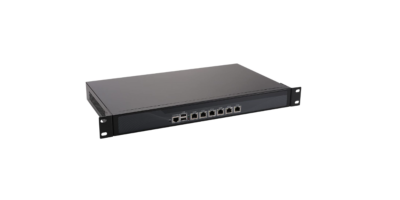The healthcare industry operates under some of the most stringent regulations in the world. From patient data protection to medical billing accuracy, compliance is critical to maintaining trust, avoiding penalties, and ensuring quality care. However, manual compliance processes can be time-consuming, error-prone, and costly. This is where AI and automation in modernizing healthcare compliance are transforming the landscape.
Artificial Intelligence (AI) and automation technologies are revolutionizing how healthcare organizations handle compliance. By streamlining workflows, reducing human error, and improving data analysis, these technologies enable providers to stay compliant more efficiently while focusing on patient care.
According to Research and Metric, AI healthcare compliance systems can cut regulatory violations by up to 87%, dramatically reducing risk and improving adherence.
In this blog, we’ll explore how AI and automation are driving modernization in healthcare compliance, the benefits they offer, and what the future holds for this growing intersection of healthcare and technology.
Understanding Healthcare Compliance Challenges
Healthcare organizations handle vast amounts of sensitive patient data daily. With strict privacy laws like HIPAA, healthcare providers must ensure that protected health information (PHI) remains secure and confidential. Non-compliance can result in severe financial penalties, reputational damage, and loss of patient trust.
Key challenges in maintaining compliance include:
- Manual data entry errors that can lead to incorrect reporting or exposure of sensitive data.
- Evolving regulatory requirements that demand continuous updates and monitoring.
- Resource limitations that prevent smaller providers from maintaining dedicated compliance teams.
- Cybersecurity threats that endanger patient data and organizational integrity.
Traditional compliance methods often fail to keep pace with the complexity of modern regulations, creating a growing need for technology-driven solutions.
The Role of AI and Automation in Modernizing Healthcare Compliance
The integration of AI and automation in modernizing healthcare compliance is revolutionizing how healthcare organizations manage regulatory requirements. These technologies reduce human effort, enhance accuracy, and ensure continuous monitoring of compliance processes.
1. Automating Data Collection and Reporting
Automation tools can gather, process, and analyze vast amounts of compliance-related data from multiple systems – such as electronic health records (EHRs), billing platforms, and communication systems.
This eliminates the need for manual data entry and minimizes the risk of errors. Automated reporting systems also ensure that compliance documents, audit trails, and logs are updated in real-time and ready for inspection whenever needed.
2. AI-Powered Risk Detection and Analysis
AI-driven systems can identify potential compliance risks by analyzing patterns in large datasets. For example, AI can detect unauthorized access to patient records, unusual billing patterns, or policy violations that could lead to HIPAA breaches.
By predicting and flagging issues early, healthcare organizations can take corrective actions before a problem escalates. This proactive approach reduces the likelihood of costly fines or data breaches.
3. Enhancing Data Security and Privacy
Data protection is at the core of healthcare compliance. AI-based cybersecurity tools use machine learning algorithms to detect threats, identify vulnerabilities, and respond to suspicious activities in real-time.
Automated systems can also enforce role-based access controls, ensuring that only authorized personnel can access sensitive health data. These safeguards help maintain HIPAA and other regulatory standards without constant manual oversight.
4. Streamlining Audit and Documentation Processes
Audits are an integral part of healthcare compliance, but preparing them can be overwhelming. AI and automation simplify this process by maintaining comprehensive digital records and generating reports instantly.
Automated audit logs ensure that every system interaction is recorded, making it easier to track compliance activities and provide verifiable evidence to auditors. This not only saves time but also increases transparency and accountability.
5. Simplifying Policy Updates and Regulatory Monitoring
Regulations in healthcare are constantly evolving. AI-powered compliance software can automatically track changes in laws, policies, and standards across different regions or governing bodies.
These systems can notify compliance officers about new updates and even suggest the necessary adjustments to internal procedures. This level of intelligence ensures that healthcare organizations remain compliant without needing to manually monitor every regulatory change.
Benefits of Implementing AI and Automation in Healthcare Compliance
The advantages of adopting AI and automation in modernizing healthcare compliance go far beyond efficiency. Here are some of the most impactful benefits:
1. Enhanced Accuracy
AI eliminates the risk of human error by ensuring consistency and precision in compliance-related tasks. Automated workflows handle repetitive duties such as data entry, documentation, and reporting, reducing discrepancies.
2. Significant Cost Savings
Manual compliance management can drain both time and financial resources. Automation reduces the need for large compliance teams, minimizes audit preparation time, and helps avoid expensive penalties.
3. Improved Data Protection
With AI-based threat detection and encryption systems, healthcare providers can prevent data breaches and unauthorized access more effectively than ever before.
4. Continuous Monitoring and Reporting
AI systems operate 24/7, providing continuous surveillance of network activities, compliance metrics, and security protocols. This real-time visibility enables faster responses to potential threats or violations.
5. Scalability and Adaptability
As healthcare organizations grow, their compliance requirements become more complex. Automation tools can scale easily, adapting to new regulations, technologies, and organizational needs.
Use Cases of AI and Automation in Healthcare Compliance
To understand the real-world impact of these technologies, let’s explore a few use cases:
- HIPAA Compliance Management: AI-powered platforms can automatically check whether policies, documentation, and IT systems align with HIPAA requirements.
- Incident Response Automation: Automated tools can detect, report, and respond to potential data breaches instantly, reducing downtime and loss.
- Regulatory Intelligence: AI tools continuously scan for new or updated compliance regulations, ensuring that organizations stay up to date.
- Audit Readiness: Automation software compiles and organizes all necessary data for compliance audits, eliminating manual preparation time.
These use cases demonstrate how technology not only simplifies compliance but also empowers healthcare providers to focus more on patient care and less on administrative burdens.
Challenges in Implementing AI and Automation
Despite their benefits, implementing AI and automation in compliance management can come with challenges:
- High Initial Costs: Setting up advanced compliance systems can require significant upfront investment.
- Integration Issues: Legacy healthcare systems may not easily integrate with new AI tools.
- Data Privacy Concerns: AI systems handling sensitive data must be properly configured to maintain compliance themselves.
- Need for Expertise: Organizations must have skilled personnel to manage and interpret AI-generated insights effectively.
However, these challenges are outweighed by the long-term benefits of enhanced accuracy, efficiency, and compliance reliability.
The Future of Healthcare Compliance
The future of healthcare compliance is undoubtedly digital. AI, automation, and advanced analytics will continue to reshape how organizations manage regulations, safeguard data, and optimize processes.
Emerging technologies like robotic process automation (RPA), natural language processing (NLP), and predictive analytics will make compliance even more intelligent and self-sustaining.
As regulatory expectations evolve, healthcare providers that invest in AI and automation now will be better positioned to remain compliant, competitive, and trusted in the years ahead.
Conclusion
The integration of AI and automation in modernizing healthcare compliance marks a turning point for the healthcare industry. These technologies streamline operations, reduce risks, and enable proactive management of compliance obligations.
By leveraging AI-driven insights and automation tools, healthcare providers can ensure data security, meet regulatory standards, and focus on their most important mission – delivering quality patient care.
How MedicalITG Can Help
At MedicalITG, we specialize in helping healthcare organizations navigate the complexities of compliance through advanced technology and expert support. Whether you’re seeking HIPAA compliance solutions, IT security assessments, or process automation, our team is here to help.
Call us today at (877) 220-8774 or email us at info@medicalitg.com to discover how we can help your organization strengthen compliance and embrace automation with confidence.










